Libya’s parliament under pressure over delayed presidential vote
Libya’s parliament has come under growing pressure to finish planning a long-awaited presidential election, after the vote was postponed earlier this week.
A group of presidential candidates called on the election commission on Friday to finalize the list of candidates for the presidential and parliamentary polls. They also warned that they would not accept further delays.
Some 98 candidates had registered for the presidential race, but no official list of candidates was presented to the public and no formal campaigning went underway. The parliament announced on Wednesday that the presidential election, planned for Friday, would not go ahead. It did not set a new date for the election.
But later on Wednesday, the electoral board suggested pushing the vote back by a month to January 24.
The parliament will meet on Monday to debate a new timeline for elections, according to an official.
Analysts, however, say that given the animosity between the eastern-based parliament and authorities in Tripoli, agreeing a new date will be far from easy.
Citing a parliamentary source, AFP reported that a committee had been formed to set out a new roadmap. The source, who asked to remain anonymous, said the assembly might propose reshuffling or replacing the current unity government.
The interim government’s mandate expires on Friday. Some members of the House of Representatives keep calling for a new government to be installed, while some main factions and political institutions may stick with the UN-recognized government.
The interim government was formed in February to take the country through to elections, but the election’s collapse, which was widely expected, has now left an internationally-backed peace process in chaos and the fate of the interim government in doubt.
The delay has also sparked anger among people who say they were “thirsty” for the crucial election that was aimed at ending a decade of chaos in the country.
Some 2.5 million Libyans had collected their voter cards, out of a population of seven million.
After the postponement of the vote, there was also a reported surge in violence in the country, including by armed groups seeking to control the country’s oil fields.
Libya has been beset by violence and chaos since the overthrow and killing of its long-serving ruler Muammar Gaddafi following a bombing campaign by the US-led NATO military alliance in 2011. The resulting chaos and factional divisions then escalated into a regional proxy war fueled by foreign powers, who poured weapons and mercenaries into the country.
UK engaged in 'systematic' suppression of pro-Palestine voices: Report
Hundreds of Greeks protest US warship arrival in Crete
Iran warns Trump against decisions based on false information
Iran embassy rejects 'fabricated' French reports on domestic affairs
Trump’s military buildup against Iran on Netanyahu’s behalf is a gambit doomed to fail
Iran dismisses US 'big lies' on nuclear, missile programs
CIA‑founded NGO admits deploying Starlink satellites for Iran riots
VIDEO | French comedian targeted by Rothschild and Epstein for his shows on Palestine


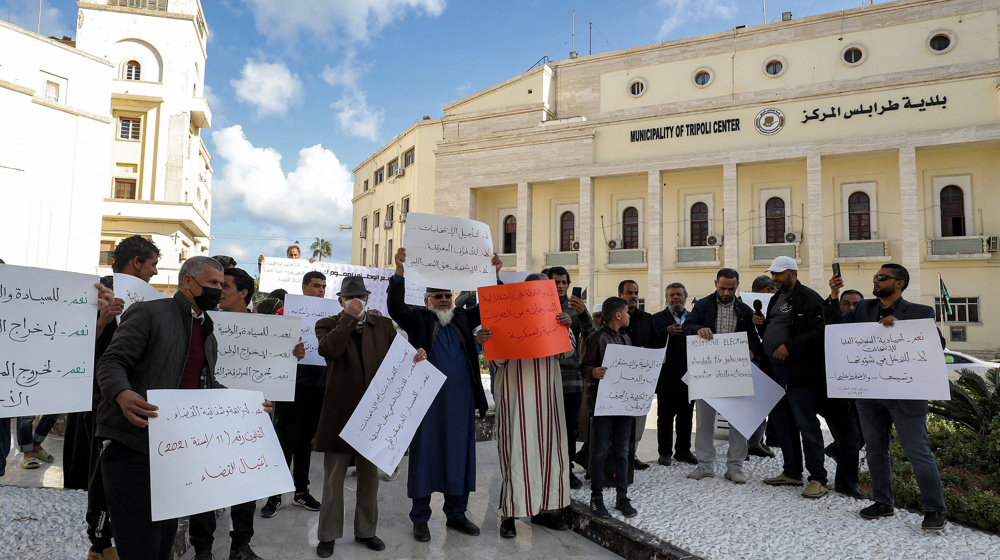
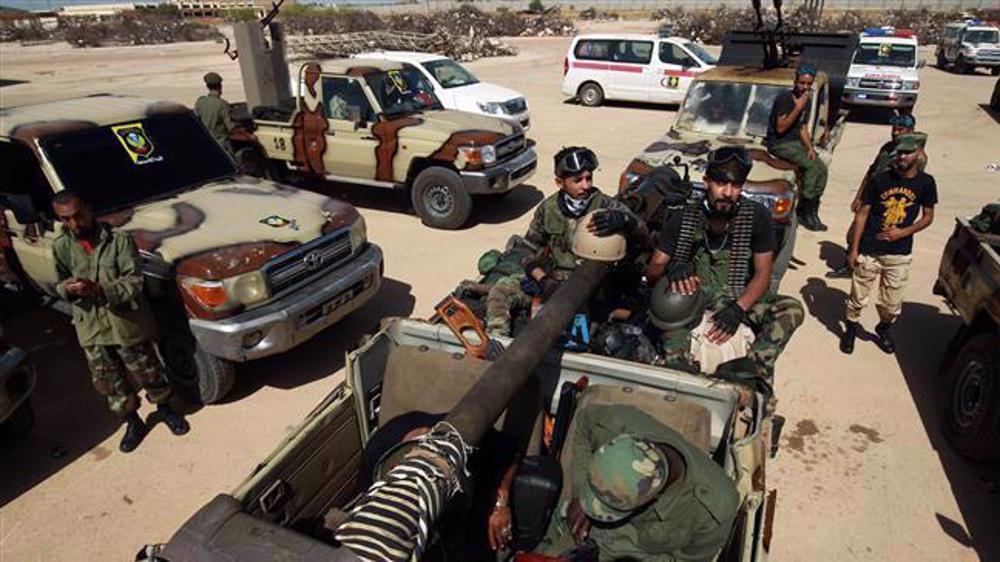

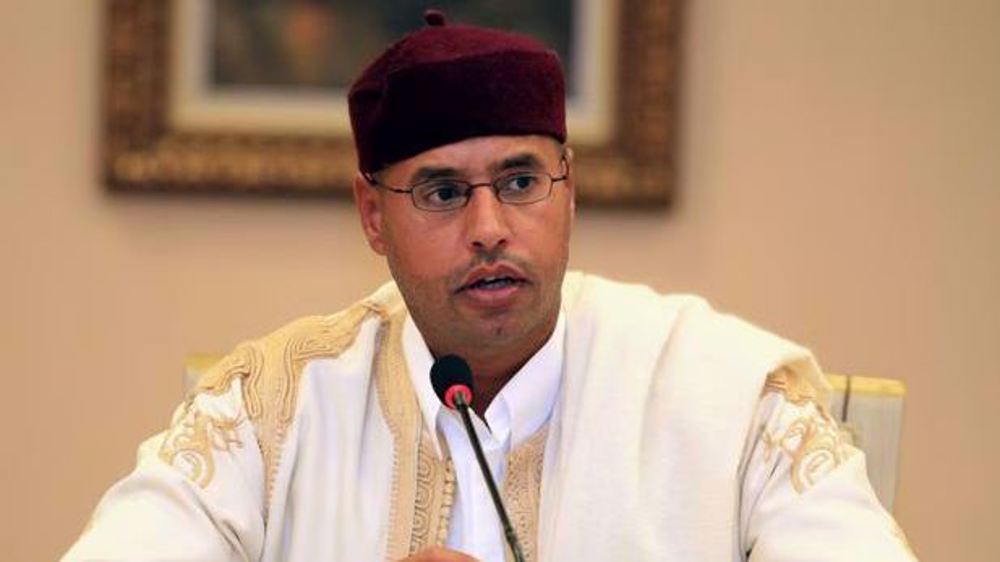
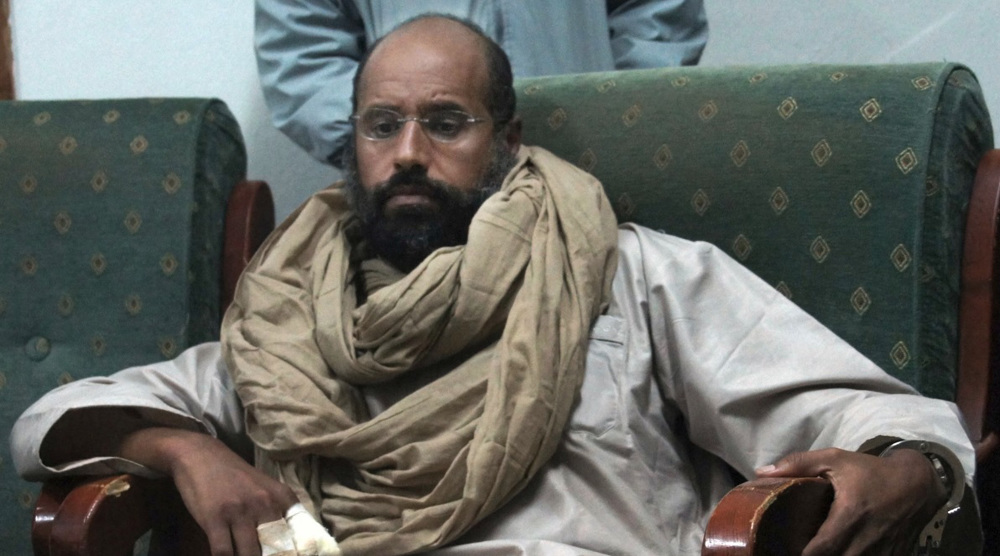



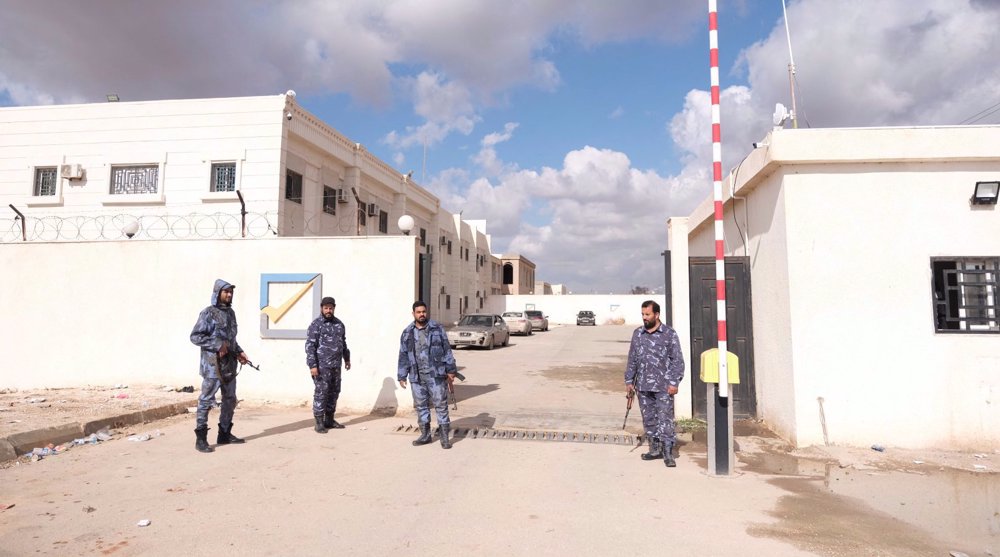

 This makes it easy to access the Press TV website
This makes it easy to access the Press TV website